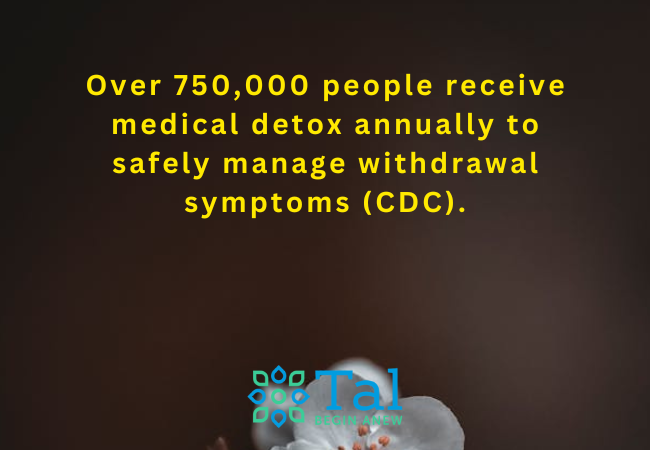Addiction is a complex disease that affects millions of individuals and their families. Finding the right treatment is crucial to achieving long-term recovery. With various approaches available, understanding the different types of addiction treatment can help individuals make informed decisions about their path to sobriety.
Understanding Addiction and the Need for Treatment
Substance use disorders impact brain function and behavior, making it difficult for individuals to stop using drugs or alcohol on their own. Effective addiction treatment addresses the physical, psychological, and social aspects of addiction, offering comprehensive care that supports recovery.
Detoxification: The First Step to Recovery
Detoxification, or detox, is the initial phase of treatment that helps the body eliminate harmful substances.
- Medical Detox: Supervised by healthcare professionals, medical detox ensures safe withdrawal by managing symptoms with medications and monitoring vital signs.
- Social Detox: A non-medicated approach where individuals receive support in a supervised setting while experiencing withdrawal symptoms naturally.
Inpatient Rehabilitation Programs
Inpatient rehab provides a structured environment where individuals live at the treatment facility while receiving care.
- 24/7 Medical Supervision: Patients receive constant medical and emotional support to manage withdrawal and cravings.
- Structured Therapy Programs: These include individual counseling, group therapy, and holistic therapies such as yoga and meditation.
- Ideal for Severe Addiction: Inpatient rehab is recommended for individuals with long-term addiction or those with co-occurring mental health disorders.
Outpatient Rehabilitation Programs
Outpatient programs allow individuals to receive treatment while continuing with their daily responsibilities.
- Partial Hospitalization Programs (PHP): Intensive treatment involving several hours of therapy each day, but patients return home at night.
- Intensive Outpatient Programs (IOP): Less restrictive than PHP, IOP requires patients to attend therapy a few times a week.
- Standard Outpatient Treatment: Weekly counseling and therapy sessions provide ongoing support for those in recovery.
Behavioral Therapies for Addiction Treatment
Behavioral therapies play a significant role in addiction recovery by addressing underlying triggers and thought patterns that contribute to substance abuse.
- Cognitive Behavioral Therapy (CBT): Helps individuals recognize and change negative thought patterns and behaviors.
- Dialectical Behavior Therapy (DBT): Focuses on emotional regulation and coping strategies.
- Motivational Interviewing (MI): Encourages self-motivation and commitment to change.
- Contingency Management (CM): Uses positive reinforcement, such as rewards, to encourage sobriety.
Medication-Assisted Treatment (MAT)
Medication-Assisted Treatment combines medications with counseling and behavioral therapies to manage withdrawal symptoms and prevent relapse.
- Methadone, Buprenorphine, and Naltrexone: Used to treat opioid addiction by reducing cravings and withdrawal symptoms.
- Disulfiram and Acamprosate: Help manage alcohol addiction by reducing dependence and deterring relapse.
- Effectiveness of MAT: Studies show that MAT significantly improves treatment retention and long-term recovery rates.
Support Groups and Peer Recovery Programs
Support groups provide ongoing emotional support and accountability in recovery.
- 12-Step Programs: Groups such as Alcoholics Anonymous (AA) and Narcotics Anonymous (NA) offer peer-led support and structured recovery steps.
- Non-12-Step Programs: Alternative groups like SMART Recovery focus on self-empowerment and evidence-based strategies.
- Family Therapy: Involves loved ones in the recovery process to strengthen support networks.

Holistic and Alternative Therapies
Holistic approaches address addiction by promoting overall well-being.
- Yoga and Meditation: Help manage stress and promote mindfulness.
- Art and Music Therapy: Encourage self-expression and emotional healing.
- Nutritional Counseling: Supports physical recovery by improving diet and overall health.
The Importance of Aftercare in Recovery
Recovery doesn’t end after completing a treatment program. Aftercare services help individuals maintain sobriety and prevent relapse.
- Sober Living Homes: Provide a supportive environment for individuals transitioning from rehab.
- Ongoing Counseling: Individual and group therapy sessions continue post-treatment.
- Relapse Prevention Planning: Develops coping strategies and identifies triggers to maintain long-term sobriety.
Choosing the Right Addiction Treatment Program
Selecting the right treatment program depends on several factors, including the severity of addiction, personal circumstances, and financial considerations. Addiction Treatment Programs in Cleveland, Ohio offer a range of evidence-based services tailored to meet individual needs.
Tal Behavioral Health provides comprehensive and personalized treatment options to help individuals achieve lasting recovery.
If you or a loved one needs help, Tal Behavioral Health offers compassionate and effective treatment options. Contact us at (216) 930-1957 to take the first step toward recovery today.
Frequently Asked Questions (FAQs)
What is the most effective treatment for addiction?
The most effective treatment varies by individual but often includes a combination of medical detox, behavioral therapy, and ongoing support.
How long does addiction treatment take?
The duration of treatment depends on the individual and the severity of addiction, but programs can range from 30 days to a year or more.
Can addiction be treated without rehab?
While some individuals achieve sobriety without formal rehab, professional treatment greatly increases the chances of long-term recovery.
What are the benefits of inpatient vs. outpatient rehab?
Inpatient rehab provides a structured, immersive environment, while outpatient programs allow for flexibility and continued daily responsibilities.
How do I know which treatment program is right for me?
Consulting with addiction specialists can help determine the most suitable treatment based on individual needs and circumstances.


